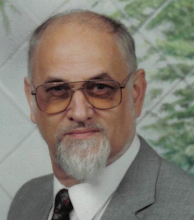 I recently came across a very sensible question on a NZ forum which needs a response. The original question I quote:
I recently came across a very sensible question on a NZ forum which needs a response. The original question I quote:May I start a new discussion on the ethics of digital media and how we deal with it currently in our schools?
What are some of your guidelines on student-teacher confidentiality and rights in your school handbooks?
I am concerned on the behalf of students who have 100's of photo's from school camps, balls and sports days placed on a shared network drive for the whole school to access, or even worse, on a webpage.
Has the permission of the students or the caregivers of these students been sought for this exposure and is it any different to displaying the pictures on the school notice board?
Another ethical issue that concerns me about Eportfolios is the hosting and integrity of the host sites on the cloud, for example, there are rumours that Facebook is
selling your public profile pictures to advertisers to use without your expressed permission.
Could this happen to other information on the cloud? I suggest not, if it was hosted by the MOE.
What other ethical views are there on this?
* Video Evidence
* Photo Storage
* Blogs - Access levels
* Cloud Data integrity
One answer came back fairly promptly:
It's all very well suggesting that people should store their data in the cloud, but when you do this you partially lose control over them, in ways that aren't necessarily in your interest.
For example, data stored in a foreign country is subject to the data protection laws of that country. I'm pretty sure the NZ government doesn't allow its data to be stored overseas for this reason.
Also, you can't just count on the good will of these "cloud services" to keep on running - or even working in your interest. For example, Facebook has absolutely no incentive to help you extract your data from it - "why would we let you do that, are you thinking of leaving Facebook?" This even applies to the Google's of this world. At the end of the day, they exist to make money - not store your data for you forever.
To me, it would make sense if a user's portfolio data was stored somewhere that at least has a partial interest in it staying around.
The answers make good sense but, as far as I am concerned, there are four very simple answers to all of this:
- An e-Portfolio is not very different to any other website or school intranet or VLE. There are usually clearly stated policies about the disclosure of personal data - in particular that photographs should not identify named individuals. Children should be encouraged to use avatars or pseudonyms on any public pages of their e-Portfolio. However, in encouraging children to feel that they 'own' their e-Portfolio they need to be more aware of these issues, or of revealing private family matters. Teachers, parents and carers need therefore to help their charges in these responsibilities.
- We do not know how information about us might be used in the future. The skills of target advertising, for instance, are not going to get blunted. In years to come it might be quite possible for an automated process to access an old photograph placed on a repository to identify that we are an animal lover for instance. My simple solution is not to risk the placing of anything of a personal nature in the hands of unknown or unvetted 'guardians'.
- The functionality of an e-Portfolio can get seriously confusing if different artefacts are stored in a variety of different repositories. Grown intelligent adults might be able to manage a whole set of artefacts 'scattered around the universe' - but this is not the case for most of our children in schools, the slow learner, the elderly or even those who just don't want the hassle of keeping a log of where everything is. The solution, keep everything to be used in the e-Portfolio in one place where links can easily be established and where the same artefacts can be used possibly several times for different purposes.
- Having said keep everything together - that is with one reservation. The e-Portfolio is not a substitute for a VLE - or even one's own PC. The e-Portfolio is not a pantechnicon to move around every single jotting, practice exercise or classroom test. From one's PLE, VLE workspace or laptop items which are of some significance can be copied to the e-Portfolio for specific e-Portfolio purposes. So again, use the e-Portfolio for the purposes for which it is intended - and not as a general dumping ground.
So, at whatever age or ability, I would just suggest use a bit of common sense!
Post Script:
For those wanting to further consider the ethics of ICT and in particular relation to e-Portfolios, I thoroughly commend Simon Grant's book, "Electronic Portfolios: Personal information, personal development and personal values".




No comments:
Post a Comment